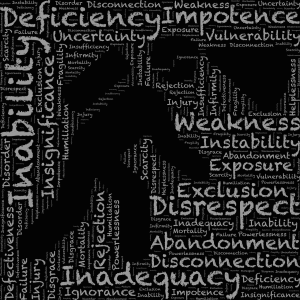Recovery After a Heart Attack or Surgery – Coping with Stress
Rapid Stress Buster!
A heart attack is a major trauma to the body, which results in a wide range of emotions one feels after such a traumatic heart event. For some the feeling may be more intense, while, for other people, it may not. Common feelings after a heart attack are worried, Anxiety, Anger, denial, etc.
These thought and emotions can impact you physically and mentally. Not dealing with these emotions can slow down your recovery after a heart attack and can also lead to a second cardiac event. Even if you have not had a heart attack, chronic stress can increase your chances of having one. We can’t get rid of stress, but we can develop tools to manage it.
Recovery After a Heart Attack or Surgery / Coping with Stress
One strategy to deal with stress is called Cognitive Restructuring
Many people fail to realize that their thinking is a major contributor to stress. They are quick to blame others or events. For example stop-and-go traffic on the highway or a accidentaly deleted computer file or an argument with your spouse. Failing to realize that it’s how you think about these events that are the true cause of the anger and frustration.
Learning the basics! ABCs
Cognitive Restructuring provides a way to control your thinking – so stressful events and circumstances don’t automatically trigger a stressful response. A well-known psychologist, Dr. Albert Ellis put together a way for you to understand and remember how you irrationally react to events and situations.
A + B = C
A = activating event
B = our belief
C = resulting consequence
A= activating event, also known as the stressor, or the source of stress. It could be a flat tire; paper jammed in the printer.
B= is your beliefs. Our thought pattern or assumptions about an event or circumstance when we get stressed.
“The boss always picks on me!”
“Tom always does that to spite me!”
“She is very disrespectful, she never calls when she says she will….”
C = is the resulting Consequence of A & B. It’s the way we frame the event based on our thoughts and beliefs that make use feel angry and upset.
For instance, if A, the activating event is a traffic jam; and in your mind you believe it is going to take forever (B), you are going to immediately get frustrated (C, the consequence). Sometimes, strangely enough, people will subconsciously, do a thing that will sabotage themselves and strengthen their irrational belief.
A+B=C
Most people believe that A=C, e.g., equate the traffic jam with frustration and stress. They do not stop to think the role their thoughts play in creating stress.
So why is that, when we say to ourselves “Why does this stuff always happen to me?”, Don’t we realize that this is an irrational way of thinking?
We often feel singled out and get into a victim role by stressful events and circumstances. (like when the paper gets jammed in the printer) when, in fact, these types of things happen to everyone.
Another example is: People often say “This is the worst possible thing that could have happened!” This too is an irrational belief. . If indeed it really was the worst possible thing, then you wouldn’t be here thinking about it.

Your may not aware when you go through this negative self-talk These are toxic thoughts and can they slow down your recovery from a heart attack or heart disease.




